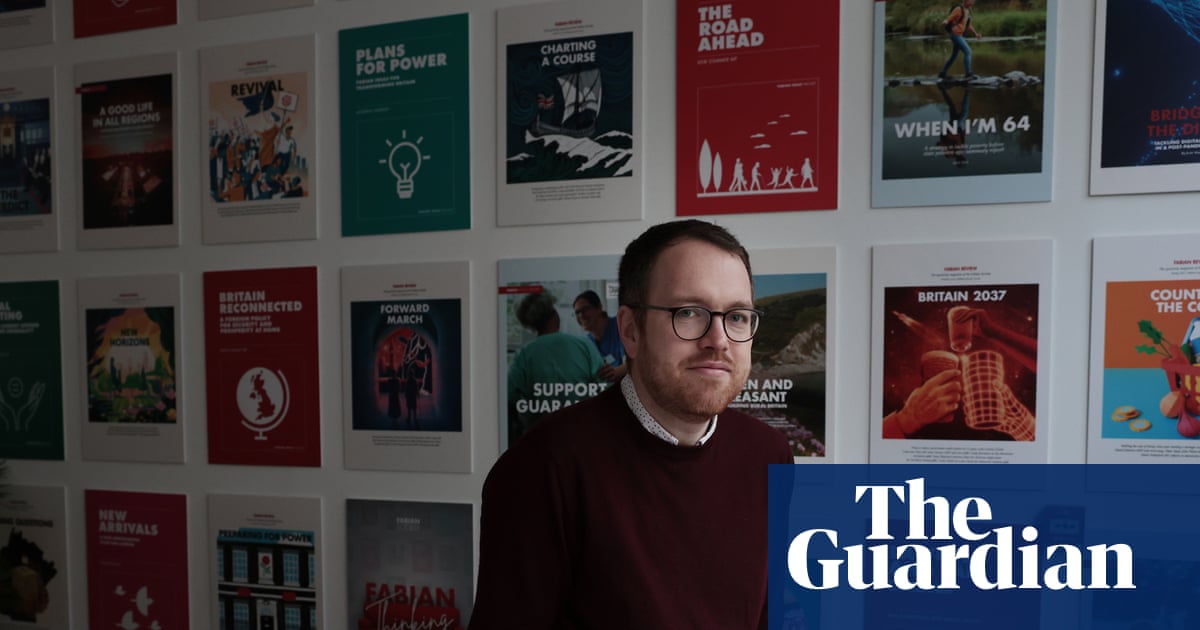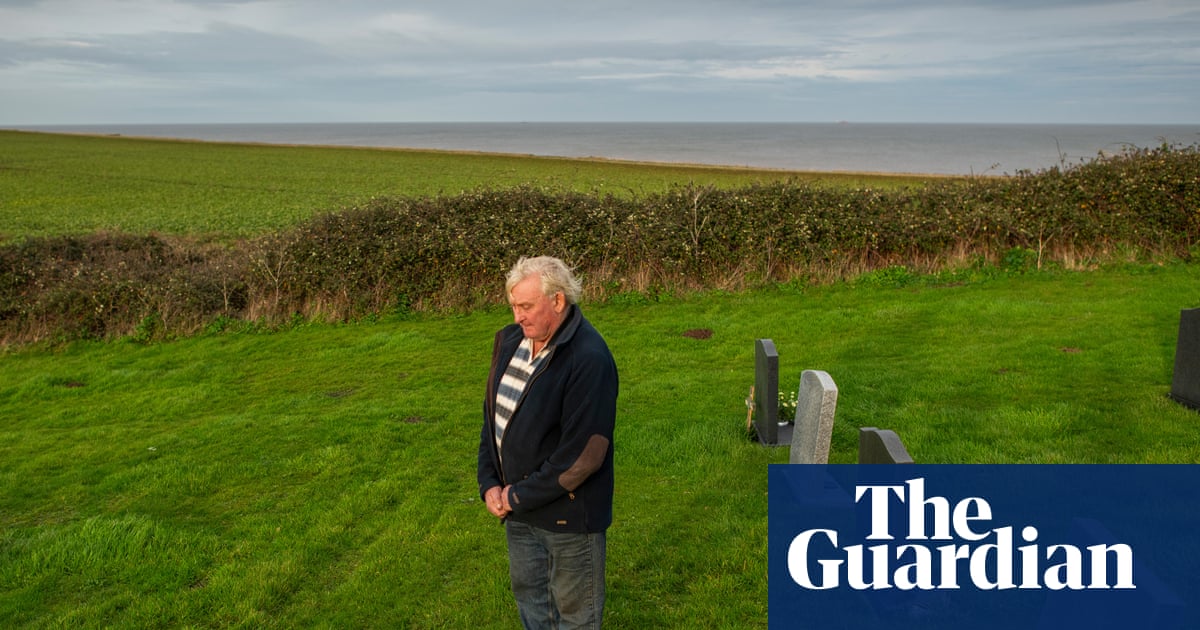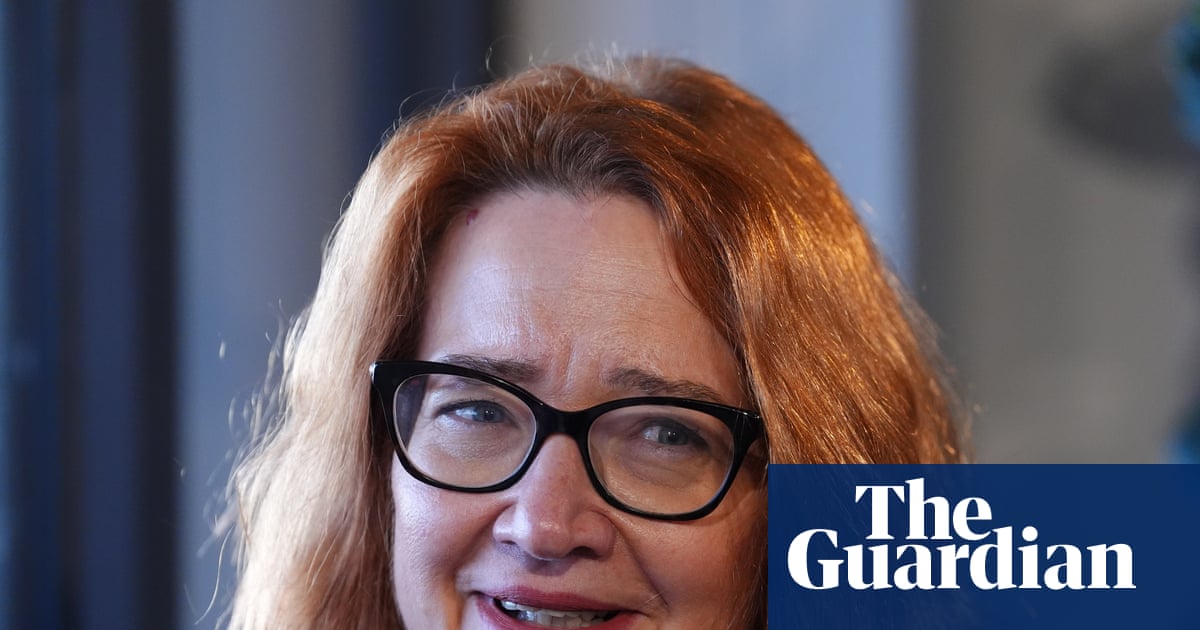Thirty years ago, the battle to save a cinema would take Jan Dunn and her community on an adventure worthy of a film itself.
When she heard that the Apollo, the last cinema in the area, was closing, she got together with a group of women who rescued it from demolition, and so was born the Plaza community cinema, run by volunteers and a handful of employees.
Local people refer to the Plaza as a “landmark” in Crosby, Merseyside, and speak with pride of the venue.
“When I started, I was 42; now I am 72,” says Jan, the cinema’s remaining founder and chair of trustees. “We were just a group of housewives and knew nothing about cinema, but we learned and we were determined.”
Jan says they could not have done it without the “amazing support” from the community.
Recalling their desperation to get the cinema shipshape for opening, she paints a vivid picture of people scrambling to help reupholster the cinema seats hours before the grand opening.
That was in 1997. Now the cinema, which is a charity, has a bustling roster of volunteers to help keep it running. They have eight paid staff and 60-70 volunteers whose ages range from 14 to 80.
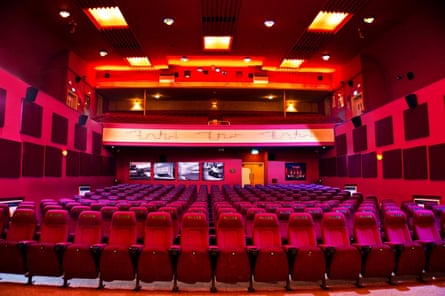
One of these is Lola, 19, who says: “There were loads of people around my age who started at the Plaza and had their lives transformed.”
She explains how, for some, it built confidence and offered a focus: “I grew up local to the cinema but always felt a bit distant from the community. By volunteering there, I learned about the area from other volunteers and it really made me feel connected.
“Everything at the Plaza is about the community and doing community events and keeping the costs really low, so it’s accessible for people.”
Community cinema tickets can often be cheaper than those at mainstream venues. Tickets at the King’s Lynn Community Cinema Club, a not-for-profit organisation, is about £2.50 a film if you take out a season membership of £20. This gives you free access to all the films, about eight a season, and there are two seasons a year. Day membership means you can watch a film by paying £6 on the door.
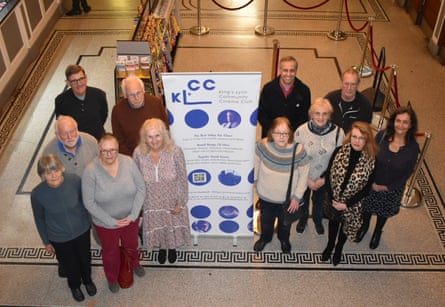
Meanwhile, the Queer Boots film club in Lancaster, which has been going for just over a year and describes itself as “a collaborative community film group dedicated to showing and discussing films highlighting the queer experience”, offers a pay-what-you-can option so people do not miss out.
This month, UK community cinema celebrates the 100th anniversary of the launch of the first UK film society on 25 October 1925. The brainchild of cultural visionaries including the film-makers Ivor Montagu and Anthony Asquith, the artist Augustus John and the economist John Maynard Keynes, it held its inaugural screening in Regent Street, central London, showcasing Paul Leni’s 1924 German silent anthology film, Waxworks, among other movies.
“Community cinemas offer affordable, local, safe spaces for people to see films together, as an audience,” says Jaq Chell, the chief executive of Cinema for All, the national charity for the support and development of community cinema. “They make an important impact on the film industry, on film education, on access to arts and culture and on people’s lives.”
There are more than 1,600 community screens across the UK, and a Festival of Community Cinema, which runs until December, is celebrating this anniversary.
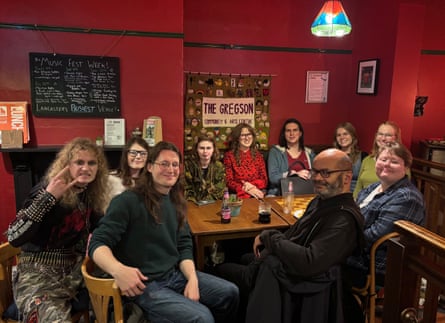
Giles Conlon, 48, of Banbridge in County Down, Northern Ireland, is not surprised by the growing interest in this cinema movement. He has worked in the film exhibition industry for more than 25 years, starting his career in multiplexes and working in independent mainstream cinemas.
Since 2024, he has been employed as a coordinator at the Newcastle community cinema and last year founded Banbridge community cinema – a small-scale pop-up with monthly screenings at a restaurant.
“I think this is now where the heart and love of cinema really is,” Conlon says. “The multiplexes and the big chains do what they do – but I think, for the people working in it and for people going, the best experience today is with community cinemas.”
This is something that chimes with those involved with community cinemas who responded to an online callout. Many spoke of how it brought people together, creating opportunities for new friendships.
It also exposed them to films they may not have chosen to see but were glad they did. The King’s Lynn Community Cinema Club, for example, has screened films from nine countries, including Iran’s My Favourite Cake.
People also credited community cinemas with making films accessible. Lots of groups flagged up the post-film discussion as an important element of a successful screening. Others spoke of the fun they had at themed dress-up nights. The Queer Boots Film Club, for example, had a Rocky Horror dress-up with a screening.
Another popular film was Beautiful Thing. “Attendees really loved the authenticity of that working-class coming-of-age experience,” says Sam Gibbons, who set up the club.
Meanwhile, the Harrogate Film Society, which has an emphasis on World Cinema, screened the animation Mavka: The Forest Song for Ukrainian families in the area.
According to Cinema for All, 31% of community screens operate in rural areas, compared with only 3% of commercial venues.
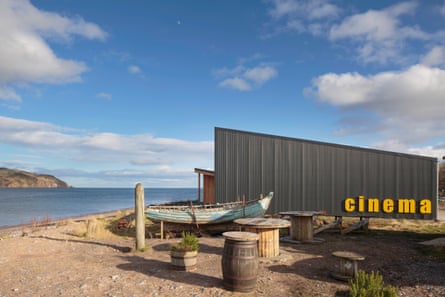
In the town of Cromarty in the Highlands, which has a population of 700, a small team worked to secure funding to build the 35-seat Cromarty community cinema.
Tanya Karlebach, trustee of the Cromarty and Resolis Film Society, which is a charity, says the cinema has become a treasured part of the community.
After a screening of the drama Sound of Metal, she recalls how she looked at the volunteers and audience and realised “how much it matters to have third spaces for people to connect in”.
Many of the community cinemas also, on occasion, raise money for charities from their screenings, while others offer training.
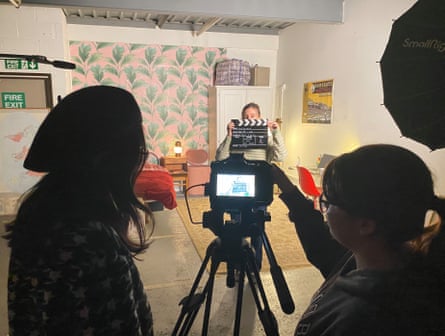
Take the Ramsgate community cinema, for example. As well as showing films, including Sisters with Transistors, a documentary about electronic music’s unsung heroines, it hosts clubs, including a youth film-maker’s club, which is free for young local people and offers access to professional film-maker mentors.
As for Lola, she is away at university but has her volunteer shift at the Plaza booked for when she returns home. “The Plaza is built on all this work that people have done completely for free,” she says. “It’s maintained by people who are doing it for fun, completely for free. It’s like a monument to kindness and community.”
-
The Festival of Community Cinema is running until December. For more information on screenings, https://mycommunitycinema.org.uk/100-years/screenings/
-
Cinema for All can be found at www.cinemaforall.org.uk

 2 months ago
66
2 months ago
66
